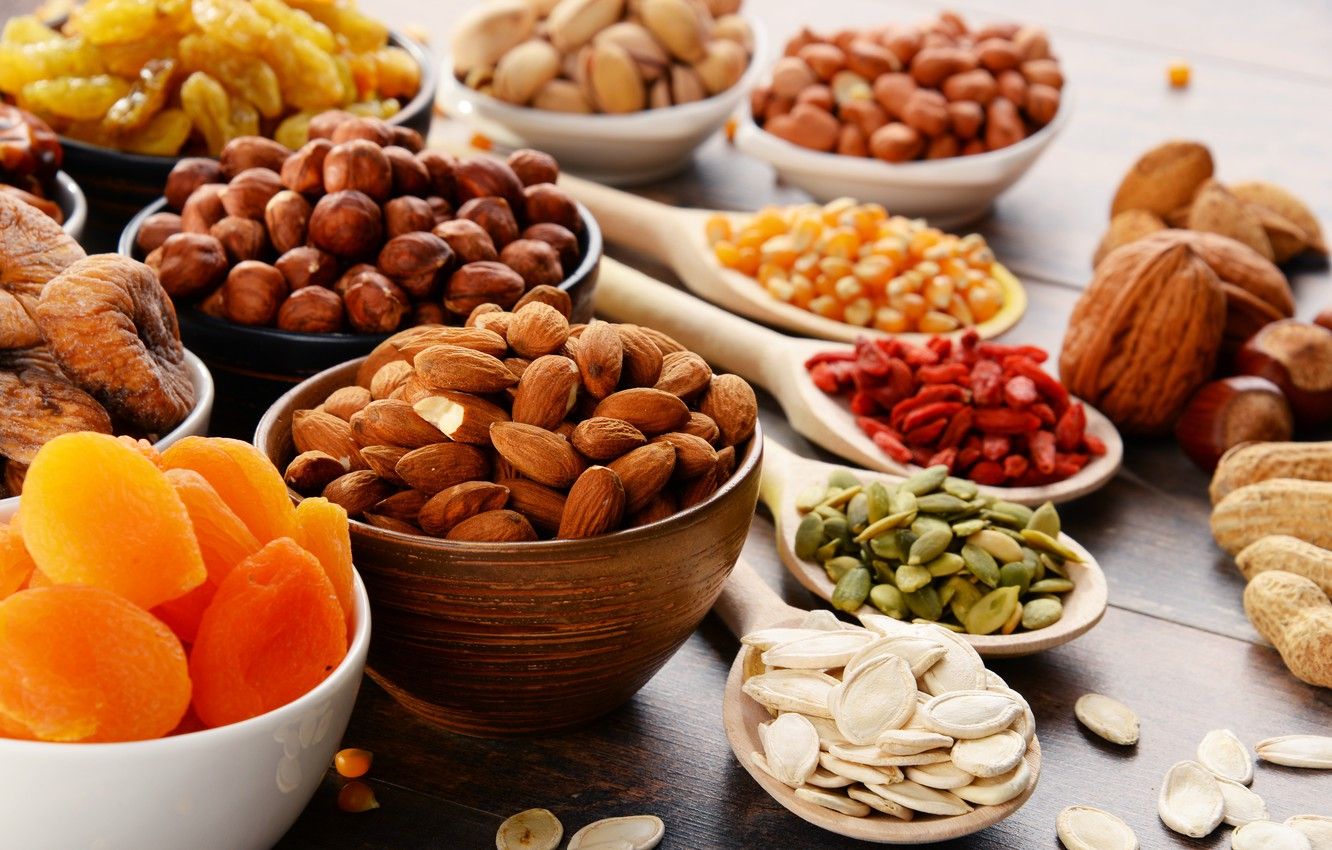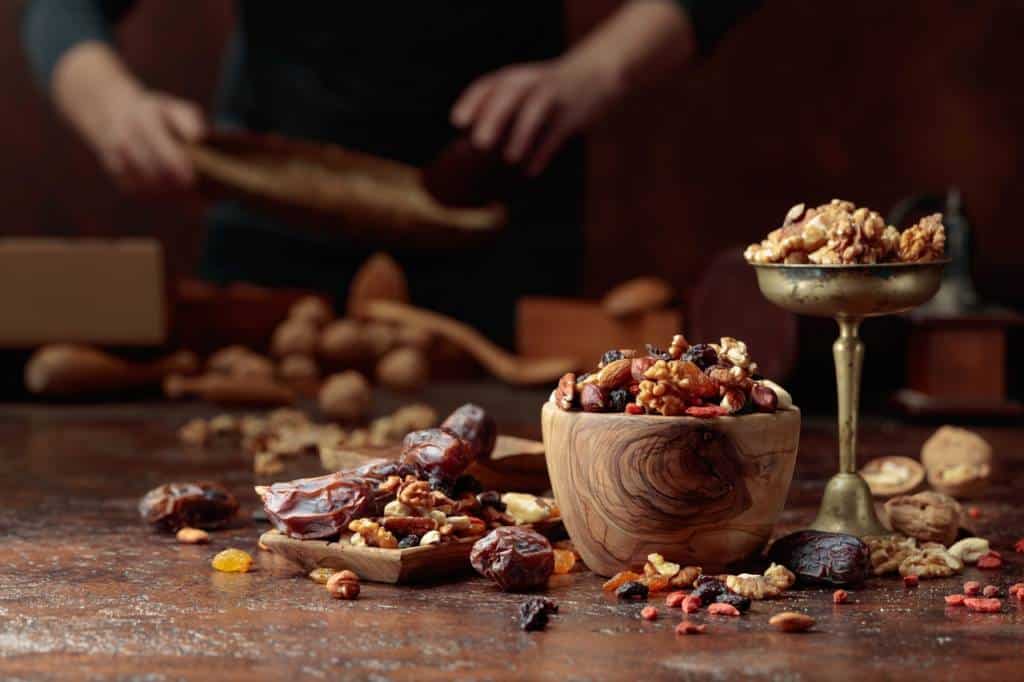Blog
Diabetic-friendly dry fruit options

Diabetics are at a higher risk of developing heart disease, stroke and kidney failure. This is because the condition can lead to high blood sugar levels and a build-up of toxins in the body. Although there is no cure for diabetes, it can be managed through diet, exercise and medication. Dry fruits are an excellent source of fibre but they also contain fats that should be consumed in moderation; so check out these diabetic-friendly options:
Almonds
Almonds are a good source of protein, fiber and vitamin E. They’re also high in calcium, which can help reduce the risk of osteoporosis.
Almonds have a low glycemic index (GI) score–meaning they don’t raise blood sugar levels quickly–and are packed with unsaturated fats that help lower LDL cholesterol levels. In fact, according to a study published in the Journal of Nutrition, eating almonds as part of a healthy diet helps lower total cholesterol by 8 points or more over time!
Pistachios
Pistachios are a good source of protein, fiber, potassium, and antioxidants. They’re also low in sodium and cholesterol. Pistachios contain vitamin B6 and folate which help reduce the risk of heart disease by lowering blood pressure.
Pistachio nuts are naturally gluten-free so they are safe for people with celiac disease or a wheat allergy who cannot tolerate gluten-containing foods like breads or pastas made from wheat flour.
Walnuts
Walnuts are a good source of protein and omega-3 fatty acids, which are beneficial for your heart health. They’re also high in calories, so they should be eaten in moderation. A quarter cup contains about 160 calories and 15 grams of fat (2).
Walnuts have an especially high amount of anti-inflammatory omega-3 fatty acids (1). These “good” fats help reduce inflammation throughout the body, which may help lower your risk for diseases like heart disease or diabetes by reducing blood pressure and cholesterol levels (3).
Pecans
Pecans are a great source of protein and fiber, with one ounce containing nearly 4 grams of each. They’re also high in monounsaturated fats, which are known to help lower cholesterol levels. Pecans are also rich in vitamin E, magnesium and zinc–nutrients that can help reduce inflammation throughout the body.
Cashews
Cashews are a great source of protein, fat and calories. They also contain significant amounts of phosphorus, potassium and magnesium.
In addition to these nutrients, cashews are an excellent source of iron (1).
There are many healthy options for dried fruits.
Dried fruits are a popular snack food because they are high in fiber, low in fat and contain no cholesterol. Dried fruits also contain high amounts of vitamins and minerals, including iron, calcium and potassium. They’re also a good source of protein as well as energy for those who may not be getting enough from their meals.
Dried fruits can be eaten alone as a snack or added to recipes for extra flavor such as baked goods or salads.
Next time you’re looking for a tasty snack, consider dried fruit. It’s a great way to get some extra vitamins and minerals into your diet while avoiding excess sugar. If you are diabetic or need help managing blood sugar levels, look for options that have fewer carbs than others so they won’t spike insulin levels too high.
Here’s a list of 10 frequently asked questions about which dry fruit is bad for diabetes:
- Are raisins bad for diabetes?
- Raisins have a high glycemic index and can cause blood sugar levels to spike. Therefore, it’s recommended to consume them in moderation if you have diabetes.
- Are dates bad for diabetes?
- Dates are rich in carbohydrates and can rapidly increase blood sugar levels. It’s best to limit their consumption or consult with a healthcare professional before including them in your diet.
- Can I eat dried apricots if I have diabetes?
- Dried apricots contain natural sugars and are relatively high in carbohydrates. They can affect blood sugar levels, so it’s advised to eat them in controlled portions.
- How about figs? Are they safe for diabetics?
- Figs are sweet and have a high glycemic index, meaning they can cause blood sugar spikes. It’s advisable to consume them in moderation and be mindful of portion sizes.
- Should I avoid eating dried mangoes if I have diabetes?
- Dried mangoes are high in sugar and can quickly raise blood glucose levels. It’s recommended to limit their consumption to maintain stable blood sugar levels.
- Are prunes a healthy snack for diabetics?
- Prunes have a high sugar content, which can affect blood sugar levels. Diabetics should consume prunes in moderation and monitor their response to them.
- Can I add dried pineapple to my diet if I have diabetes?
- Dried pineapple contains high amounts of natural sugars and can disrupt blood sugar control. It’s best to avoid or limit their consumption if you have diabetes.
- What about dried cranberries? Are they safe for diabetics?
- Dried cranberries are often sweetened with additional sugar. They can cause blood sugar levels to rise and should be eaten sparingly or avoided altogether.
- Are dried apples a good choice for people with diabetes?
- Dried apples have a concentrated sugar content and can potentially elevate blood sugar levels. It’s advisable to consume them in moderation and monitor their effect on blood sugar.
- Can I include dried cherries in my diabetic diet?
- Dried cherries have a moderate glycemic index and may lead to a gradual increase in blood sugar levels. However, portion control is crucial, and it’s best to consult a healthcare professional for personalized advice.
Remember, the information provided here is based on general guidelines and it’s always recommended to consult with a healthcare professional or a registered dietitian for personalized advice related to your specific condition.




